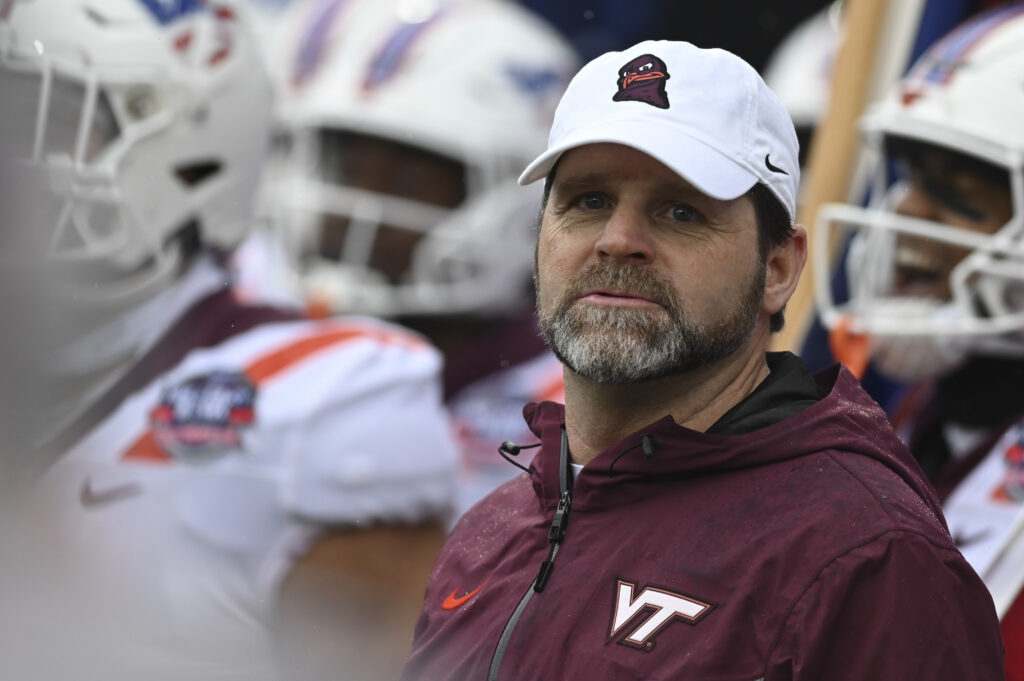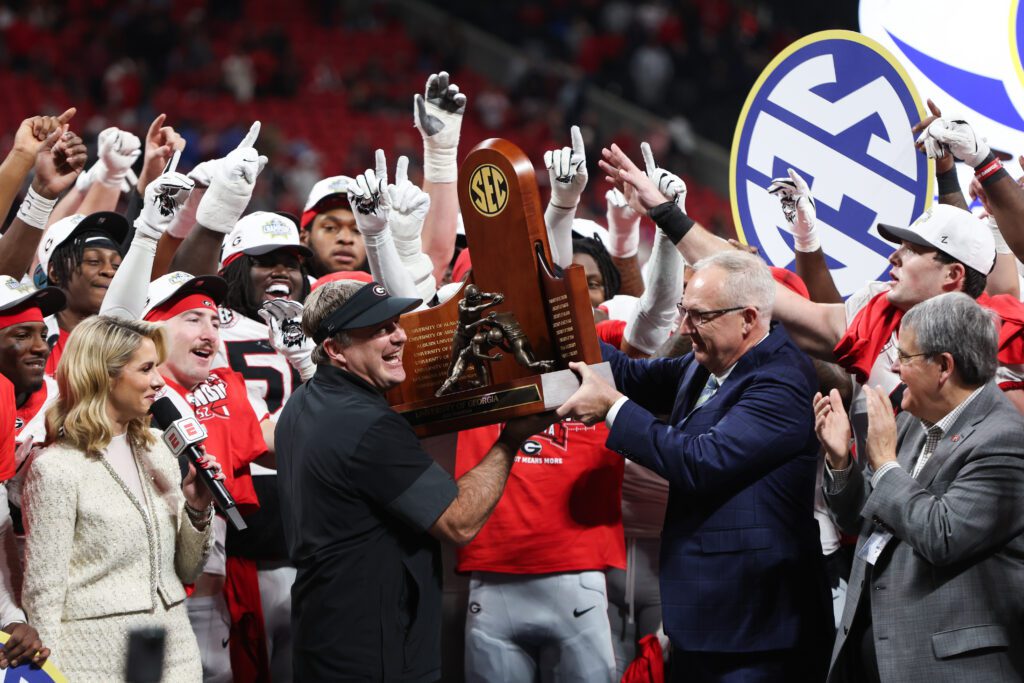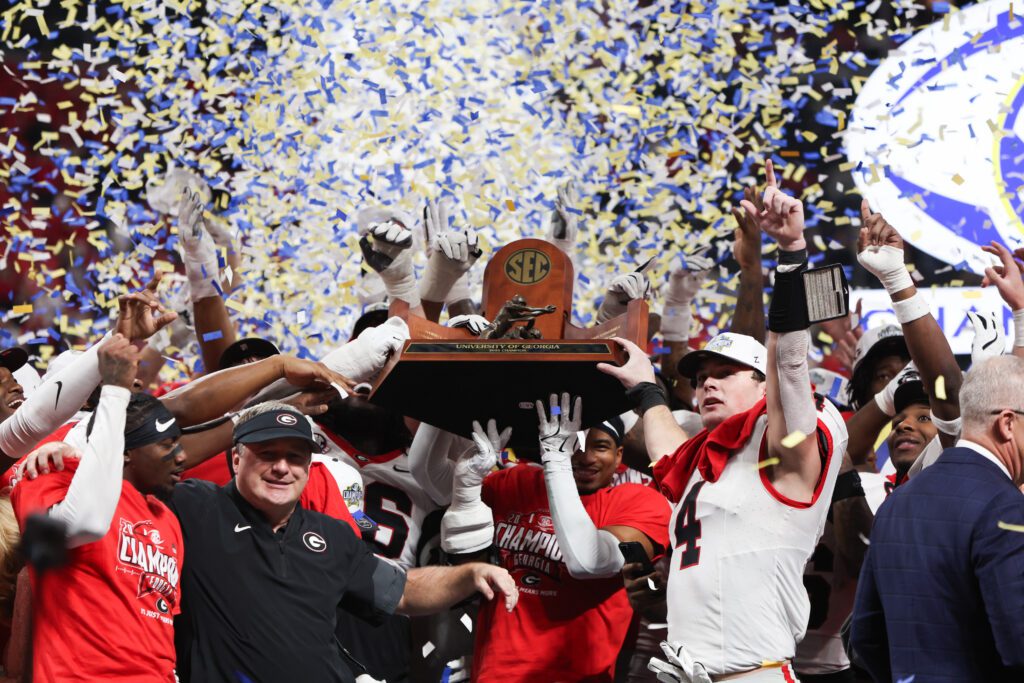With Brent Pry officially out as Virginia Tech’s head football coach after a disappointing 0–3 start to the 2025 season and a 16–24 overall record, the Hokies now face a pivotal decision. This next hire will reshape the future of the program—on the field, in recruiting battles, and within the fanbase. With so much at stake, the decision will be heavily scrutinized. For a program that’s lost its identity in recent years, the pressure is on to get it right.
Virginia Tech was once a perennial powerhouse built on tradition, toughness, and consistency. But in recent seasons, that identity has faded. The next head coach must bring a clear vision and a plan to restore the program to its former glory. The big question: who’s the right person to lead Virginia Tech into a new era?
Who Replaces Brent Pry as Head Coach at Virginia Tech?
Internal Options: Stability in a Time of Uncertainty
Internal candidates like interim head coach Philip Montgomery, J.C. Price, and rising defensive coach Sam Siefkes offer continuity—something that could prove valuable given the current roster and recruiting class. Keeping things in-house might help prevent a mass exodus of players and recruits, a common result when a new regime takes over.
Montgomery brings head coaching experience from his time at Tulsa, Price has deep ties to the program and strong leadership qualities, and Siefkes represents youth and upside. Each has qualities that make them appealing, but each also comes with questions—mostly around recruiting experience, long-term vision, and the ability to engineer a full turnaround.
External Candidates: Big Names, Bigger Decisions
If Virginia Tech decides to look outside the program, there are several intriguing names with varying degrees of experience and risk.
Alex Golesh, currently at South Florida, is an emerging offensive mind known for innovation and adaptability. He could bring energy and modernization to the program, but it remains to be seen whether he’d leave USF for this opportunity.
Billy Napier brings SEC experience and high-level recruiting chops, but his time at Florida has been inconsistent. Shane Beamer would be a popular choice given his ties to the program, though prying him away from South Carolina would be difficult. Ryan Silverfield at Memphis may offer the best mix of upside and realism—an experienced coach looking for the next big step at a Power Five program.
Final Thoughts: Who Makes the Most Sense?
If the Hokies want a bold reset, Alex Golesh may be the most compelling option—a blend of innovation, energy, and forward momentum. The question is whether he’d be willing to leave his current situation. If the goal is stability and steady progress, Ryan Silverfield is a solid, safer choice.
A wildcard option would be Michael Vick—a fan-favorite and Hokie legend. His hire would turn heads nationally and bring Deion Sanders-level flair, but it would also carry substantial risk. With limited coaching experience, Vick would need a top-tier staff and significant administrative support to succeed.
Internally, Montgomery offers short-term continuity, but Virginia Tech must decide whether that’s enough. His performance over the remainder of the season will likely determine if he’s a serious long-term candidate. This stretch is his audition—an opportunity to prove he can steer the ship through turbulent waters.
A Defining Decision for the Future
Virginia Tech football stands at a crossroads. The program has the resources, tradition, and fanbase to return to national relevance—but only if the right leader is chosen. Whether that’s a rising star, a proven veteran, or a beloved name from the past, this decision will shape the next decade of Hokies football.
The administration must commit to a clear plan—and stick with it. More than anything, Virginia Tech needs a head coach who can recruit at a high level, modernize the offensive and defensive schemes, and reignite the team’s culture and identity. The next hire can’t just inspire hope—it has to deliver results.
Main Image: Tommy Gilligan-Imagn Images



